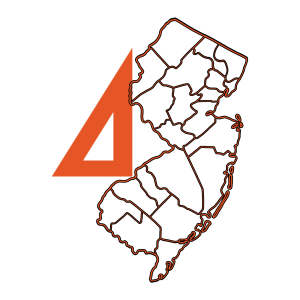Potential Consequences of Delayed Reserve Studies in New Jersey
For community associations such as homeowners associations (HOAs), condominiums, and cooperatives in New Jersey, timely completion of Reserve Studies is essential. A Reserve Study evaluates the condition of a community’s common areas and infrastructure to plan for future repairs and replacements. It also provides a financial roadmap for setting aside the right amount of funds in a reserve account to cover major expenses over time. If you’re in New Jersey in counties such as Monmouth or Middlesex, it’s important to understand the potential consequences of delaying your Reserve Study.
Understanding a Reserve Study in New Jersey
A Reserve Study includes two main components: a physical analysis and a financial analysis.
The physical analysis inspects common elements such as roofs, parking lots, elevators, and amenities to determine their remaining useful life.
The financial analysis estimates how much money will be needed over time to cover the cost of repairs or replacements, helping the association plan its budget.

In New Jersey, although there is no specific law mandating how often Reserve Studies must be conducted, it is highly recommended by industry professionals to perform one every three to five years. Not completing or updating a Reserve Study in New Jersey can lead to a host of negative outcomes.
Legal Risks and Fiduciary Responsibility
Board members of community associations in New Jersey have a fiduciary responsibility to manage the association’s finances properly. Part of this responsibility includes ensuring there are adequate funds in the reserve account for future repairs and replacements. Failing to conduct regular Reserve Studies can be viewed as a breach of this fiduciary duty, which could lead to legal consequences.
Homeowners might file lawsuits against board members if it is found the association failed to maintain proper reserves. Additionally, in extreme cases, this lack of financial planning could result in the association being forced to levy large, unexpected special assessments to cover emergency repairs. Board members who do not fulfill their fiduciary duty may face personal liability, putting them at risk for lawsuits.
Financial strain and special assessments
When Reserve Studies are not completed on time, the association risks being underfunded for future repairs. If a major component of the community, such as a roof or a parking structure, suddenly needs repair or replacement, the association may not have enough money saved in its reserve account.
This situation typically leads to special assessments, which are additional fees imposed on homeowners to cover unplanned expenses. Special assessments can place a financial burden on residents, often causing frustration and potential financial hardship. Homeowners who are already on a tight budget may struggle to pay these unexpected costs, leading to tensions within the community.

In addition to special assessments, the association may also need to take out loans to cover immediate repairs, increasing the financial strain on the community. Loans come with interest costs, meaning the community will end up paying more in the long run for repairs than it would have if proper reserve planning had been in place.
Decreased property values
Communities who do not complete regular Reserve Studies may see their property values decline. Buyers tend to be wary of purchasing homes in communities with underfunded reserves, as they know they might be hit with special assessments in the future. If a Reserve Study shows a well-funded account and a proactive maintenance plan, potential buyers feel more confident in the community’s long-term stability.
Neglected repairs due to insufficient funds can also lead to a noticeable decline in the overall condition of the community. This can affect curb appeal, homeowner satisfaction, and the desirability of the neighborhood. Over time, deferred maintenance can cause serious damage, making the community less attractive to both current residents and prospective buyers.
Increased costs for emergency repairs
When infrastructure or common elements are not maintained properly, emergency repairs can be much more expensive than planned maintenance. Emergency repairs often need to be completed quickly, without the benefit of obtaining multiple bids or scheduling during less busy seasons. This urgency leads to higher repair costs and often involves more extensive work than would have been required with regular maintenance.
By not completing Reserve Studies on time, community associations may miss the opportunity to plan for repairs in advance and secure the most cost-effective solutions. The result is an increase in the overall cost of maintaining the property.

Without an updated Reserve Study, the association might struggle to secure the necessary financing for major repairs, further exacerbating financial challenges. This can reduce the pool of potential buyers, ultimately lowering property values and slowing down property sales within the community.
Communities failing to conduct timely Reserve Studies may also find lenders view them as a higher risk, making it more difficult to get favorable loan terms. Higher interest rates or stricter loan conditions can further increase the financial burden on the association and its members.
Preventative Maintenance and Long-Term Savings
Conducting regular Reserve Studies helps associations plan for necessary repairs well in advance. By doing so, they can engage in preventative maintenance, which is far more cost-effective than waiting for components to fail and require emergency repairs. Reserve studies provide a roadmap allowing communities to stay ahead of problems, extending the life of key infrastructure elements like roofs, HVAC systems, and plumbing.
Communities embracing a proactive approach to maintenance through updated Reserve Studies can realize significant long-term savings. Addressing minor issues before they become major problems not only reduces repair costs but also improves the overall health and aesthetic appeal of the community. This leads to increased homeowner satisfaction, stable property values, and a more attractive living environment.
How Often Should Reserve Studies Be Conducted in New Jersey?
The recommended frequency for conducting Reserve Studies in New Jersey is every three to five years. This timeline ensures the community stays up-to-date on the condition of its infrastructure and has an accurate understanding of how much needs to be set aside in reserve funds.
In addition to the standard three- to five-year interval, there are other circumstances requiring more frequent updates:
- Significant Property Changes: If the community undergoes major renovations or adds new amenities (such as a pool, fitness center, or clubhouse), an updated Reserve Study will be needed to account for these additions.
- Major Repairs/Early Deterioration: If a significant component of the community’s infrastructure fails sooner than expected or requires repairs earlier than projected, the Reserve Study should be updated to reflect this change.
- Inflation and Cost Increases: Rising material and labor costs can quickly render an older Reserve Study outdated. Communities should ensure their Reserve Study reflects current economic conditions to avoid underfunding.

Regularly updating the Reserve Study helps to ensure the community is prepared for both expected and unexpected repair costs, reducing the financial burden on homeowners.
Steps to Ensure Reserve Studies Are Completed on Time
To avoid the negative consequences of failing to complete Reserve Studies, boards should adopt the following best practices:
- Establish a Reserve Study Schedule: Boards should create a schedule for Reserve Studies, setting clear expectations for when updates will be conducted. By planning for a study every three to five years, the board can ensure reserve funding levels are always based on the most accurate and up-to-date information.
- Hire Qualified Professionals: The Reserve Study should be conducted by a qualified professional, such as a Certified Reserve Specialist (CRS) or a licensed engineer, who understands New Jersey’s specific climate, building codes, and regulations. A qualified professional will provide an accurate analysis and cost estimate for future repairs.
- Communicate with Homeowners: Transparency is key to maintaining trust within the community. The board should communicate the findings of the Reserve Study to homeowners, explaining the importance of reserve funding and the steps being taken to ensure the long-term financial health of the community.
- Budget for Regular Updates: Boards should include the cost of Reserve Study updates in their annual budgets. By budgeting for this expense, the association can avoid financial surprises when it’s time for the next study.
Conclusion: New Jersey Reserve Study
Failing to complete or update Reserve Studies in New Jersey on time can have serious consequences, including legal risks, financial strain, special assessments, and decreased property values. By adhering to the recommended schedule of conducting a Reserve Study every three to five years, community associations can stay ahead of infrastructure needs, avoid costly repairs, and fulfill their fiduciary duties.
Proactive planning through regular Reserve Studies is essential to maintaining the financial health and stability of any community. It ensures funds are available for future repairs, protects homeowners from financial surprises, and helps maintain or even increase property values. By prioritizing regular Reserve Studies, New Jersey communities can safeguard their assets and build a stronger, more resilient future.
Schedule your Reserve Study with Criterium-Hanna Engineers today:

